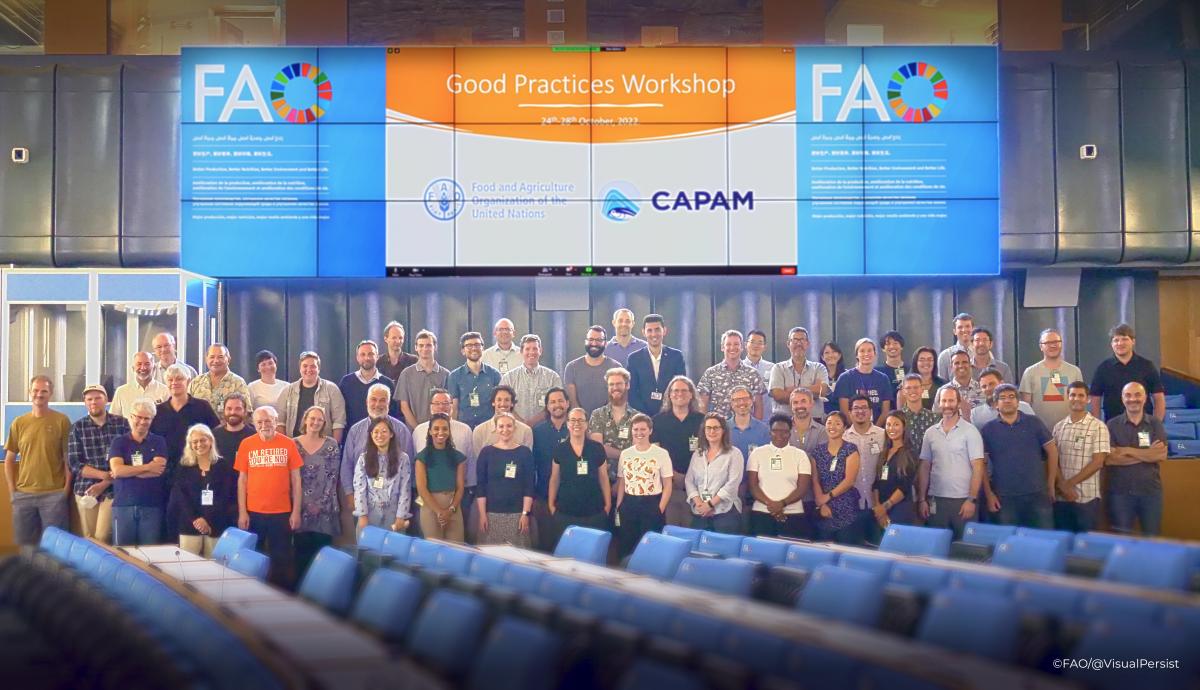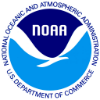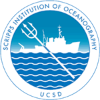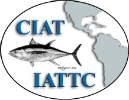Good Practices Workshop
The Center for the Advancement of Population Assessment Methodology (CAPAM) and the Food and Agriculture Organization (FAO) hosted a technical workshop on Stock Assessment Good Practices in Rome during 24 to 28 October, 2022. The good practices workshop was the crescendo in a series organized by CAPAM as part of its Good Practices in Stock Assessment Modeling Program for improving fishery stock assessments.
CAPAM’s goal is to improve quantitative methods used in fisheries stock assessment and facilitate the development of a Good Practices Guide (GPG). The main activities of CAPAM revolve around the workshop series and associated special issues in the journal Fisheries Research. The workshops have covered several topics including: diagnostics, natural mortality, next generation stock assessment models, spatial stock assessment models, spatio-temporal modelling, recruitment, data weighting, growth, and selectivity. A workshop on model weighting is organized for 2022. Most of the important topics have been covered in the workshop series laying down the foundations for the GPG. However, writing a GPG is an arduous and contentious job. Therefore, a 5 day workshop was held to initiate the construction of the GPG. The goal was to start the organizational process early to give time for each invited speaker to prepare a thorough draft paper on good practices for their specific topic. The papers were available to participants at the workshop and can be updated after the workshop before submitting to the journal special issue. FAO is a global reference in providing technical expertise, the best and latest available scientific evidence, information and advice on the global status of stock for decision-makers and fisheries managers. Additionally, as custodian of four indicators under the Sustainable Development Goal (SDGs), including SDG Indicators 14.4.1 on ‘Fish Stocks Sustainability’ and 14.6.1 on ‘Illegal, Unreported and Unregulated Fishing’, FAO plays a leading role in developing relevant global indicators, frameworks and best practices to be used in data-poor to data-rich assessments. The mutual benefit of FAO hosting this with CAPAM is therefore evident.
The 5-day forum included keynote and research presentations, and focused discussions. Major topics included: recruitment, natural mortality, growth, selectivity, stock and fishery structure, spatial stock assessment models, random effects/state-space models, data weighting, diagnostics, CPUE analysis, and data limited approaches. Keynote speakers included:
- Why good practices are needed: Rick Methot
- A good practices guide (covers most if not all topics): Andre Punt
- Stock and fishery structure: Steve Cadrin
- CPUE standardization: Simon Hoyle
- Growth: Hui-Hua Lee/Kevin Piner
- Selectivity: Rick Methot
- Natural mortality: Owen Hamel
- Recruitment: Liz Brooks
- Data weighting: Jim Thorson
- Random effects/state-space models: Anders Nielsen
- Spatial stock assessment models: Dan Goethel/ Aaron Berger
- Diagnostics: Felipe Carvalho
- Integrated Population Models: Michael Schaub
- Data limited stocks: Jason Cope



